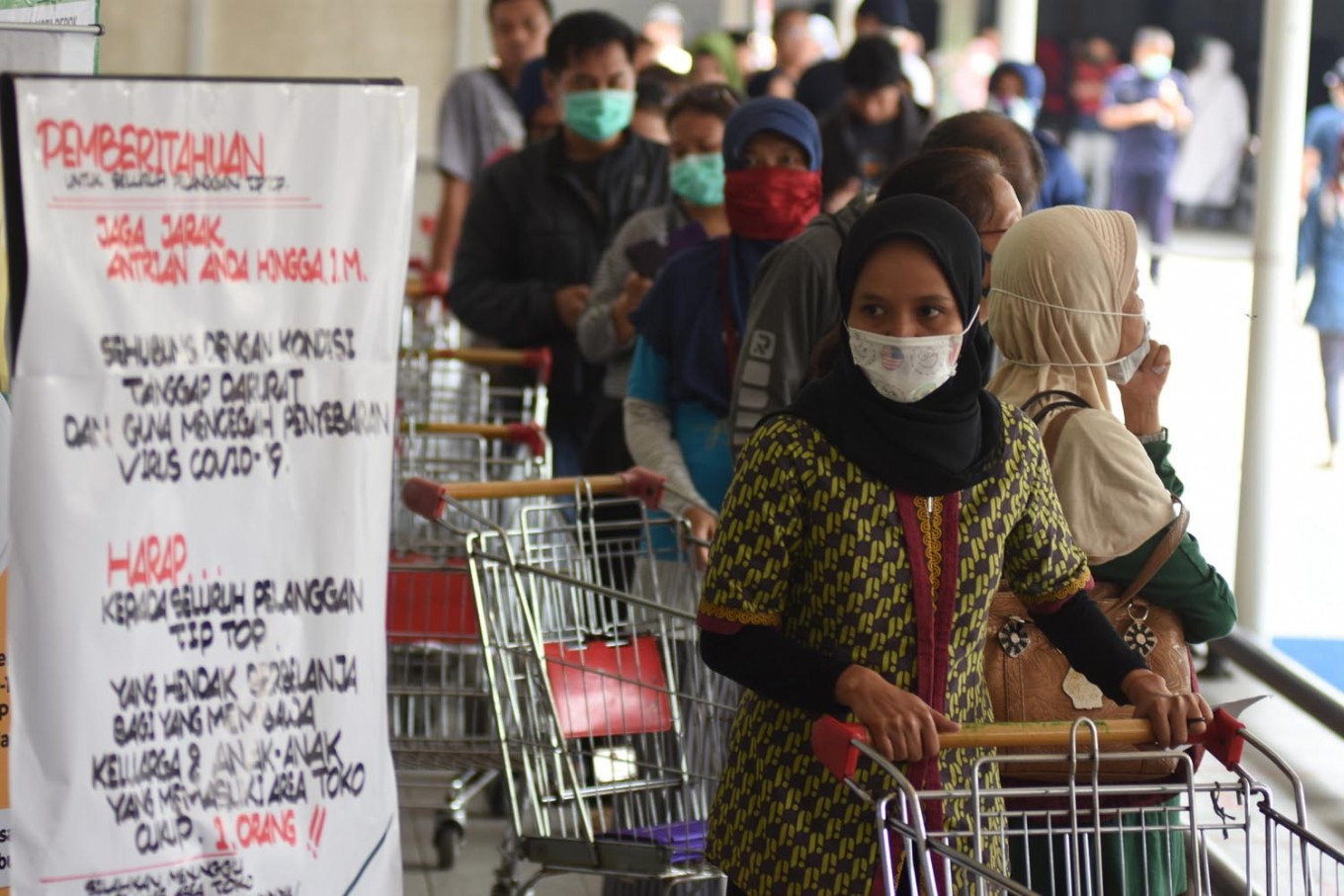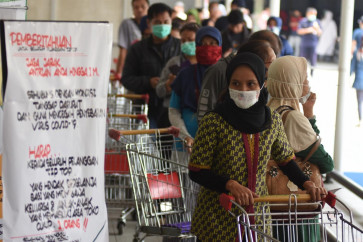Popular Reads
Top Results
Can't find what you're looking for?
View all search resultsPopular Reads
Top Results
Can't find what you're looking for?
View all search resultsAnalysis: Q1 2025 economic slowdown threatens Prabowo’s growth ambitions
Change text size
Gift Premium Articles
to Anyone
I
ndonesia’s economy grew by just 4.87 percent in the first quarter of 2025, its weakest Q1 performance since 2022, despite a seasonal boost in consumer spending during Ramadan and Idul Fitri. The slower-than-expected growth casts early doubts on President Prabowo Subianto’s ambitious economic targets, including achieving 8 percent annual growth by 2029 and reaching high-income status by 2045.
The government had set a full-year growth target of 5.2 percent, but both the World Bank and the International Monetary Fund (IMF) have revised their forecasts downward to 4.7 percent. Data released by Statistics Indonesia (BPS) indicates that, aside from trade, all gross domestic product (GDP) components underperformed in the first quarter.
Household consumption, which accounts for over half of GDP (54.5 percent), grew by 4.89 percent year-on-year (yoy), barely changed from 4.91 percent in Q1 2024. Government spending, meanwhile, contracted by 1.38 percent, a sharp reversal from the election-driven surge of 20.44 percent in the first half of 2024.
A major factor in the contraction was fiscal tightening, as the government redirected budget allocations toward key flagship programs, notably President Prabowo’s free nutritious meal program and the establishment of the Danantara sovereign wealth fund. While the free meals program was expected to stimulate local economies through food distribution, the rushed rollout has been marred by logistical issues and food poisoning incidents in West Java, Central Java and East Nusa Tenggara.
The industrial sector also showed signs of stress. The mining industry contracted by 1.23 percent, continuing a downward trend due to falling commodity prices since 2023. Construction grew just 2.18 percent, down significantly from 7.59 percent in the same period last year, as infrastructure spending was slashed by 74 percent.
This economic sluggishness has translated into declining tax revenues. Collections for January to April totaled just Rp 451.11 trillion (US$28.2 billion), down 27.7 percent from the previous year and represented only 20 percent of the government’s annual target of Rp 2.18 trillion. The shortfall threatens to widen the budget deficit, currently projected at 2.53 percent of GDP. The country’s tax ratio has also deteriorated, slipping to 10.08 percent in 2024 from 10.39 percent in 2022, well below Prabowo’s goal of reaching 11.5 to 15 percent during his term.
Meanwhile, layoffs continue to mount. Between January and April 2025, 24,036 workers were laid off, nearly matching the total number for all of 2022. Most of the newly unemployed have shifted to informal employment, pushing the share of informal workers to 59.4 percent in February 2025, up from 59.17 percent a year earlier.



















